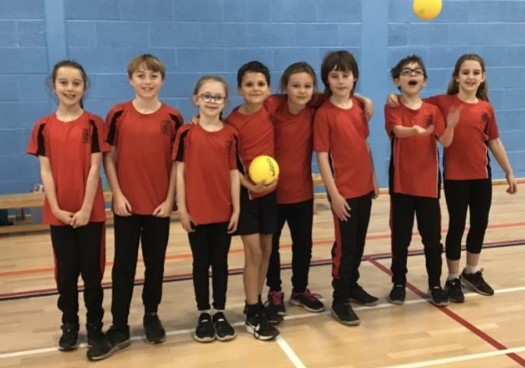PE & Sports
Please access the Padlet below to see some of the exciting things we do in PE, Activity & Sport at Priors Field.
Click here for the padlet for Inter & Intra School Sport Events
Our philosophy & culture
The aim of our PE Curriculum is to create physically literate children who love being active and understand the benefits it has on their lives. In KS1, we focus on the development of key fundamental skills that are then built upon in KS2 when they are applied to sports and specific scenarios. As well as physical skills, we encourage children to embrace teamwork, communication, leadership and evaluation skills in order to progress even further in their active journey. Above all, we aim to create a PE curriculum that is for everyone, a curriculum that all pupils can access and be challenged by through the use of differentiation and adaption to meet all needs. 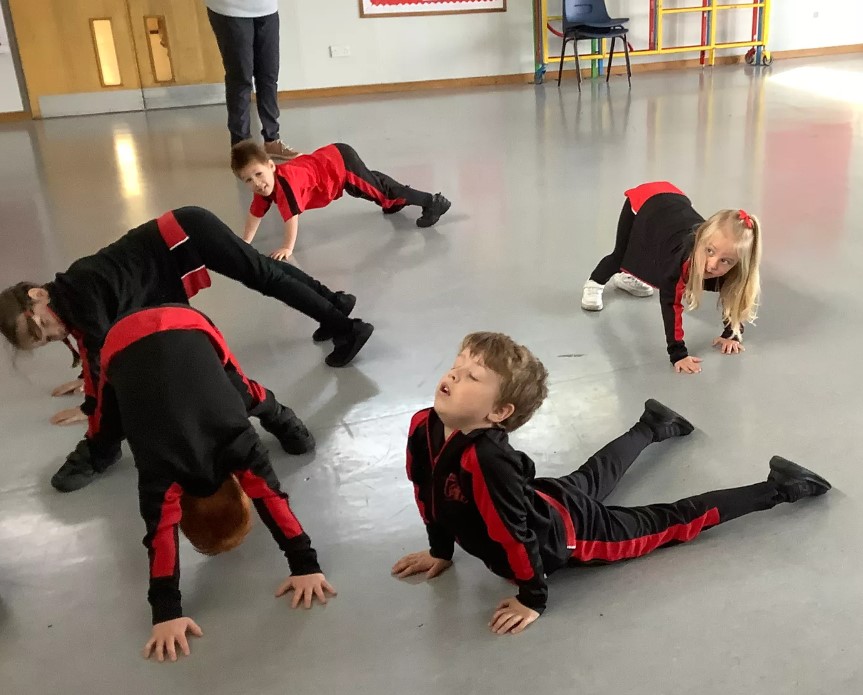
How children learn PE & Sport
Curriculum Design
We have bought into a Curriculum provider that we believe best meets our vision of PE that’s accessible and fun for all. Many aspects are built in within the curriculum to ensure that we offer high quality teaching and learning opportunities.
All of the units we teach within school throughout the year fit into one of five categories-
- OAA- Where pupils take part in outdoor and adventurous activities to build their independence but also their teamwork and communication skills.
- Athletics- Where pupils will work on their agility, balance, coordination and strength within a mixture of isolated and combined movements and actions.
- Gymnastics- Where pupils will work on their fundamental movement skills such as rolling and crawling, before looking at more complex movements that will help develop flexibility, strength, technique, control and balance.
- Dance- Where pupils will look at using their basic skills to create movements and sequences that show control and fluency.
- Games- Where pupils will look to apply a range of different skills to game specific scenarios and develop understanding of concepts such as attacking, defending, possession and friendly competition.
Alongside all of this, we also offer all of our pupils the opportunity to attend swimming and water safety lessons, provided by qualified staff at a local swimming pool.
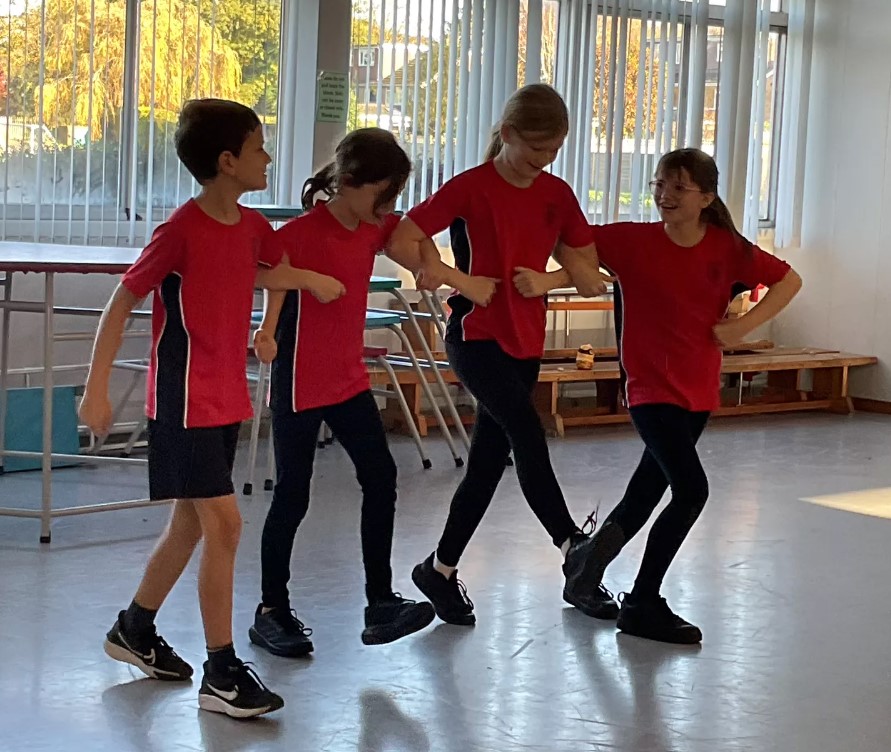
Enrichment Opportunities
Through School Sport, we take part in numerous inter and intra school events that give our pupils the chance to compete and develop in different scenarios. We aim to give these opportunities to all pupils in order to introduce them to friendly competition and the notions of sportsmanship, fair play and respect that accompany this. We find that our pupils thrive in these types of events and really enjoy putting their skills into practice within competitive but safe scenarios.
Through Physical Activity, we aim to create an active playground during break and lunch times. We offer numerous opportunities each day through the use of play equipment, lunchtime clubs and the opportunity to play various sports throughout the term. Our lunchtime clubs are inclusive to all, but are carefully picked in order to also give our pupils the chance to practice before similar School Sport opportunities in the future.
Through all three strands, we believe that we offer the opportunity for all of our pupils to meet the Government recommendations of 60 Active minutes a day, whilst also developing a love of sport and activity that is constantly pushing and challenging them to go further.
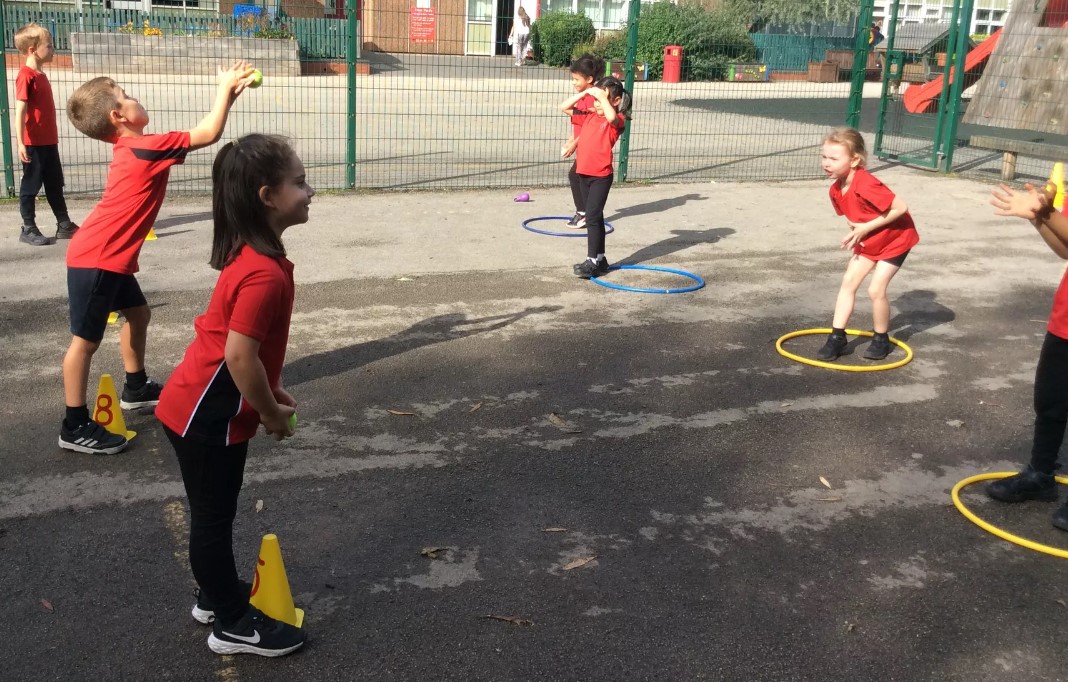
Cross-Curricular Links
We believe that a curriculum that offers links with other subjects is extremely beneficial in helping to consolidate and further develop the pupils’ understanding of what they’re learning. Our PE Curriculum offers various links with other subjects:
- Links to basic Maths and time through the use of Personal Best Challenges and Circuit Training.
- Links to PSHE through the use of Fit for Life, Well-Being Ambassadors and other opportunities during PE where pupils are encouraged to think about their physical and mental Well-Being.
- Links to Science where pupils will investigate and learn about parts of their bodies, e.g. what muscles are used for and how different activities use different muscles, the respiratory system and how activity can influence heart rate and physical fitness. There are also different themes for some units that are linked to learning in Science, e.g. Plants, Electricity, The Seasons.
- Links to History and Geography through the use of different themes in PE, e.g. Gunpowder Plot, WW2, Rivers & Mountains, Under the Sea, Rainforest etc.
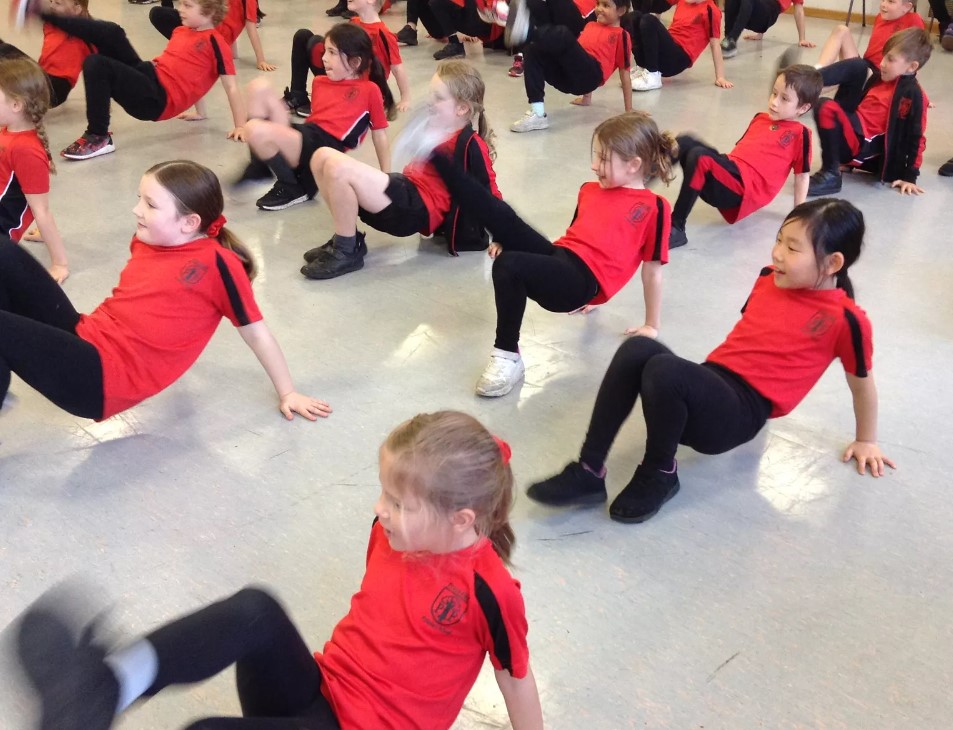
Assessment
Throughout each unit, we use a mixture of formative and summative assessment in order to best evaluate the progress of each pupil. During lessons, staff will offer constant feedback and support to ensure that all pupils are being suitably challenged at all times. Where possible, we also encourage peer and self-reflection so that pupils are constantly able to reflect and challenge themselves within a lesson.
Differentiation & Inclusion
Throughout PE and sport, we try to incorporate the STEP principle in order to adapt lessons to meet individual needs. This is where the Space, Timing, Equipment or People can be modified in order to alter how challenging an activity is. We also recognise that everyone learns in different ways, and that a mixture of learning methods (e.g. visual demonstrations, direct questioning, experiential learning) is best to help pupils understand and retain knowledge and skills.
Skill Development
Progression is key to how our pupils develop their skills. After learning new skills, our curriculum offers constant ways to further explore and develop throughout the primary PE journey. Throughout the EYFS and KS1, pupils will develop basic and fundamental movement skills that mostly work on their agility, balance, coordination and speed. These skills are then further developed and put into practice within different game scenarios.
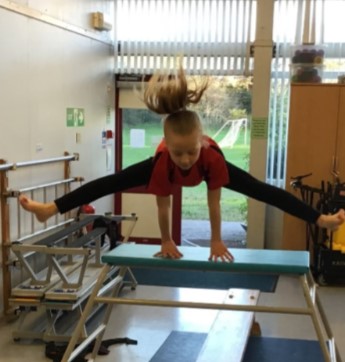
The impact of the PE curriculum
Attainment & Progress
Through the processes of summative and formative feedback we track pupils’ attainment and progress throughout their PE journey. With this information, we are able to make sure that we are challenging each pupil and giving them all the support they need to develop, whether that be by modifying the challenge level or by giving pupils more opportunities to access parts of the curriculum that they’re struggling with or excelling in.
Engagement
We aim to strengthen and reinforce the idea that sport is for all, and by having an inclusive practice that engages everyone and allows them to take part, we are able to show all pupils that they can all achieve in PE and sports. Our uniform creates an active environment that not only allows pupils to have longer PE lessons, but also enables them to take part in activity throughout the day such as lunchtime clubs and active lessons. We use intra/inter-school events to both engage the pupils in competition and to help signpost them to local community clubs, so that they are able to lead active and healthy lives both in and out of school.
Transferable Skills
The physical and non-physical skills that we develop through our PE Curriculum really help our pupils grow and develop skills that are beneficial not only in school, but also in later life. The curriculum encourages problem solving, communication and teamwork which are all important skills for pupils to continually develop. We also use themes that can be transferred across similar sports and units. For example; hockey, football and basketball are all types of invasion games that our pupils learn through KS2, and focusing on skills such as spatial awareness, possession, attacking & defending and tackling, the concepts are continually reinforced throughout their PE journey.